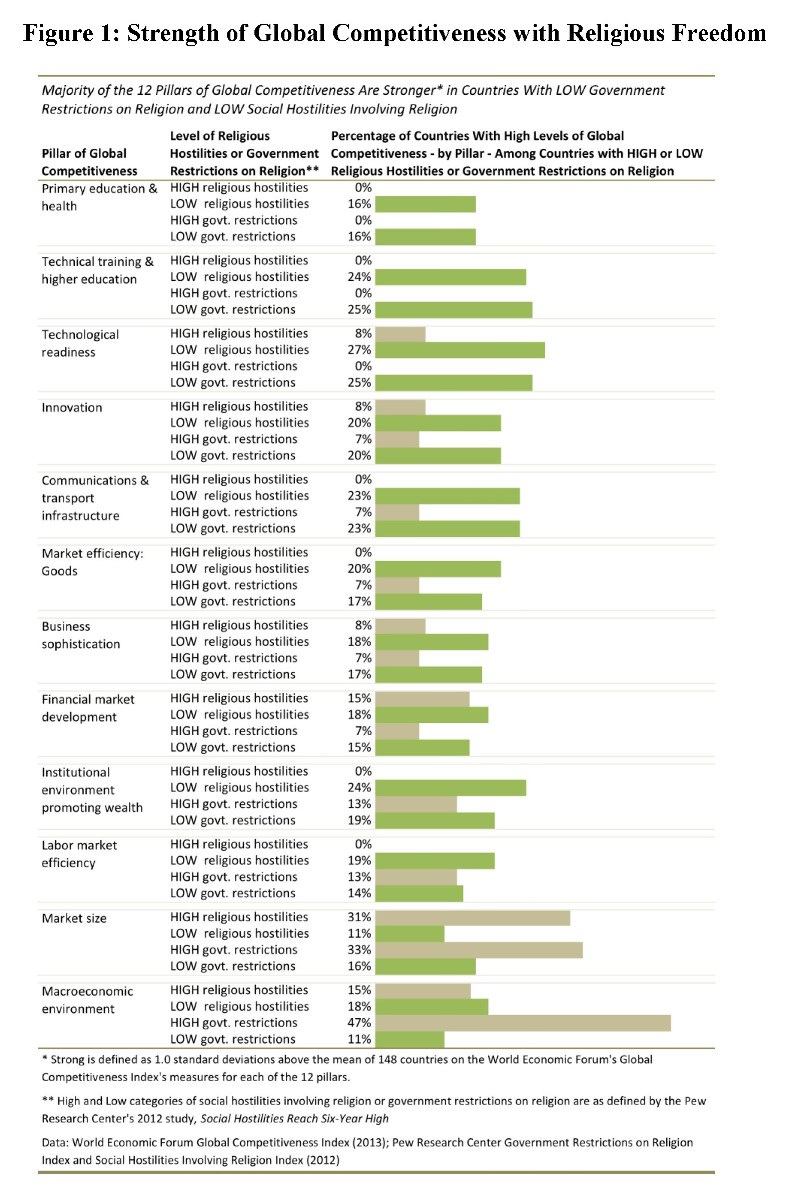In the United States, we’ve only begun to see how impediments to religious liberty can harm and hinder certain businesses and entrepreneurial efforts. Elsewhere, however, particularly in the developing world, religious restrictions and hostilities have long been a barrier to economic growth.
To identify these realities, Brian Grim of Georgetown University and Greg Clark and Robert Edward Snyder of Brigham Young University conducted an extensive study, “Is Religious Freedom Good for Business?,” which concludes that “religious freedom contributes to better economic and business outcomes.”
Katrina Lantos Swett and Daniel Mark summarize the key findings at Investor’s Business Daily:
Reviewing the GDP growth of 173 countries while controlling for 23 financial, social and regulatory factors, [Clark and Snyder] found that religious freedom not only is associated with global economic growth, but also is one of only three factors carrying that association.
As the study found, 20% of countries with low levels of religious hostilities and 20% nations with low levels of government restrictions on religion were economic innovators, while the figures for nations with high levels of hostilities and restrictions were only 8% and 7%, respectively.
See the chart below for the breakdown:
The correlational relationship itself is striking, but the authors move beyond this, setting out to “empirically test and find the tandem effects of religious restrictions and hostilities to be detrimental to economic growth while controlling for other theoretical, economic, political, social, and demographic factors.”
For the intricacies of this aspect of their argument, read the entire study here.
Their conclusion:
Although this research does not suggest that religious freedom is the antidote to poor economic performance, it does suggest that religious freedom is correlated with economic success. One implication may be that businesses would benefit from taking religious freedom considerations into account in their strategic planning, labor management, and community interactions. For instance, in evaluating locations for future research and development operations, countries with good records on religious freedom may provide a favorable environment in which to practice innovation and experimentation.
On the basis of arguments from the religious economies theory and the empirical results presented, we conclude that religious freedom contributes to better economic and business outcomes and that advances in religious freedom are in the self-interest of businesses, governments, and societies by contributing to successful and sustainable enterprises that benefit societies and individuals.
(HT: Chandler Epp)
[product sku=”1172″]


